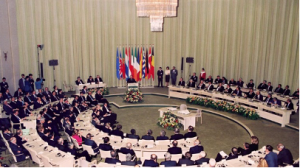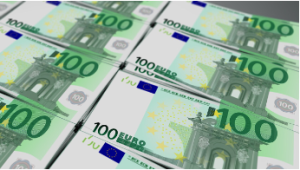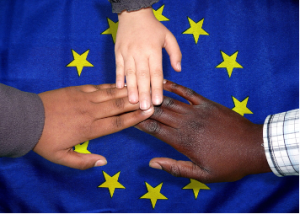The awesome History of the EU and how it affects our daily lives
This article was written by Kasra Mohammadzadeh
This article will give an overview of the history of the European Union, it will also cover its treaties , and how it affects our daily lives with things such as freedom, study, currency, work and travelling.
Most people ask themselves “What is the EU?”, “When was it formed?” and “What treaty was in action?”.
Well, you’re in luck because I’ll be answering those questions in this article.
European Union (EU), is an international organisation comprising 27 European countries. It also governs common economic, social, and security policies.
Originally confined to Western Europe, the EU undertook a strong expansion into central and eastern Europe in the early 21st century.
The EU’s members are Austria, Belgium, Bulgaria, Croatia, Cyprus, the Czech Republic, Denmark, Estonia, Finland, France, Germany, Greece, Hungary, Ireland, Italy, Latvia, Lithuania, Luxembourg, Malta, the Netherlands, Poland, Portugal, Romania, Slovakia, Slovenia, Spain, and Sweden. (The United Kingdom, which had been a member of the EU since 1973, left the organization in 2020.)
The EU was created by the Maastricht Treaty, which entered into force on November 1, 1993. The treaty was designed to enhance European political and economic harmony by creating a single currency which is now known as the Euro, a unified foreign and security policy, and common citizenship rights, by advancing cooperation in the areas of immigration, asylum, and judicial affairs.
The EU was awarded the Nobel Prize for Peace in 2012, in recognition of the organization’s efforts to promote peace and democracy in Europe

Maastricht Treaty, formally known as The Treaty on European Union, was approved by the heads of government of the states of the European Community (EC) in Maastricht Netherlands in December 1991. The treaty was approved by all EC member states however voters in Denmark rejected the original treaty but later approved a slightly modified version of it, the treaty was signed on February 7, 1992, and entered into force on November 1, 1993.
The treaty established the EU, and as a result EU citizenship was granted to every person who was a citizen of a member state.
Now that we know how the EU was formed let’s start talking about how it affects our daily lives:
The European Union (EU) has been a significant force in shaping the lives of European citizens since its start. Through its policies, regulations, and measurements, the EU has touched numerous aspects of our daily routines and increased opportunities in every field of human endeavour.
This part of the article explores some of the key ways in which the EU affects our lives as European citizens.
The major advantage of the EU is the Economic Prosperity

The EU has played a crucial role in promoting economic growth and stability across its member states. As European citizens, we benefit from a single market with free movement of goods, services, capital and labour. This combination has resulted in increased trade, job opportunities and investment opportunities. It has also led to the adjustment of standards and regulations, ensuring consumer protection and fair competition, which directly affects our purchasing choices and overall well-being.
Another way that it affects our lives is via Travel and Mobility

One of the most tangible and visible aspects of EU membership is the freedom of movement within its borders. As European citizens, we enjoy the privilege of travelling, studying, working and living in any EU country without requiring visas or work permits. This freedom encourages cultural exchange, facilitates career development, and broadens our horizons. Additionally, the EU’s Erasmus+ programme has provided countless students with opportunities to study abroad, promoting cross-cultural understanding and personal growth.
Another important point is Consumer Protection and Rights

The EU places great attention on safeguarding the rights and interests of its citizens. Through legislation, the EU ensures that products meet high safety and quality standards. Whether it’s food labelling, product safety requirements, or data protection regulations like the General Data Protection Regulation (GDPR), the EU actively works to protect our privacy, health and well-being. These measures contribute to a safer and more transparent marketplace, giving us confidence and trust in the products and services we use.
Moving on to Environmental Sustainability!
Recognising the importance of environmental protection, the EU has implemented numerous measures to address climate change, promote renewable energy, and protect biodiversity. The European Green Deal, for instance, sets tough targets for carbon neutrality, clean energy, and sustainable agriculture. These initiatives directly impact our daily lives, driving changes in energy consumption, waste management, and transportation. The EU’s commitment to a greener future encourages sustainable practices and fosters a healthier environment for us and future generations.
What often gets overlooked is also Consumer Pricing and Competition
Which is basically The EU’s effort to promote fair competition and prevent monopolies, these have had a significant impact on consumer pricing. By promoting open markets and breaking down barriers, the EU encourages competition among companies, resulting in more competitive pricing and increased choices for consumers. Whether it’s lower mobile data prices, more affordable air travel via plane, or reduced cross-border trade costs, these benefits directly affect our wallets and enhance our standard of living.
Speaking of trading and prices, let’s talk about Social and Workers‘ Rights,

The EU actively supports social relations and workers‘ rights through legislation and funding programmes. It has implemented regulations related to working conditions, equal pay, and workers‘ rights, ensuring a level playing field and fair treatment across member states. The EU’s Social Fund promotes social inclusion and invests in training, education, and employment initiatives, providing opportunities for disadvantaged communities and individuals. As European citizens, we can expect fair treatment and protection of our rights in the workplace.
In a nutshell,
The European Union plays a central role in shaping our daily lives as European citizens. All the way from the economic benefits of the single market to the freedom of movement, consumer protection, environmental sustainability, to workers‘ rights, the EU’s impact is far-reaching and multifaceted. By promoting unity, prosperity, and social cohesion, the EU enriches our lives. As European citizens, we are fortunate to be part of a union that actively works to improve our well-being.
Sources:
Europa.eu
Britannica.com
Wikipedia.org
Sources pictures: pixabay.com

Kommentare
Hinterlassen Sie ein Kommentar